FOCUS: EDUCATION/ ONLINE PROGRAMS



According to the National Institutes of Health, nursing education should serve as a platform for continued lifelong learning and include opportunities for a seamless transition to higher degree programs. Online nursing degree programs provide nurses with a nontraditional path to earn their nursing degrees; however, in the past choices were limited.
The good news is that in 2023, 614 schools offered online nursing programs. Of those programs, 254 schools offered online RN to BSN programs, and 149 offered online graduate nursing programs from more than 900 schools accredited by the Accreditation Commission for Education in Nursing (ACEN).
But even with access to online nursing programs offering greater flexibility––selfpaced learning in a comfortable learning environment, increased class participation, and more significant opportunities for career advancement––the ongoing shortage of nursing educators is a contributing factor in the persistence of the nursing shortage.
Data from the American Association of Colleges of Nursing (AACN) indicate that American nursing schools turned away 78,191 qualified nursing applications (not applicants) nationwide. And of those applications turned away, 66,261 were from the entry-level baccalaureate, 1,239 from RN-to-BSN, 5,907 from master’s, 4,583 from DNP, and 201 from PhD nursing programs due to insufficient clinical placement sites, faculty, preceptors, and classroom space and budget cuts.
Finding a solution to close the nurse educator gap is critical to ensuring patients can receive the best care possible, and such a solution exists in online nursing education, where students from around the world can connect and share information about healthcare challenges and advances.
The importance of nursing education cannot be understated. This month, Minority Nurse profiles nursing education and online programs.
• Our society and the lives of those within it depend on the quality and quantity of the nursing workforce, and it’s our responsibility to see that the education pipeline remains filled with the talented nurses of tomorrow.
• Nurse Blake is known for using humor to bring nurses together, but as the creative force behind NurseCon at Sea, he’s built one of the largest and most popular nursing conferences.
• Nursing educators share tips for choosing the best online program.
• Nurses strive to deliver the best care to all patients, independent of socioeconomic status, gender, race, or other factors, and we examine how some schools teach health equity.
• No one knows what the future of nursing will look like, but one nursing leader offers insight into who can reframe the perception of nursing.
“Education is the most powerful weapon you can use to change the world.”
SPRINGER
CEO & Publisher Mary Gatsch
Vice President & CFO Jeffrey Meltzer
Focus: Education/Online Programs
Editor-in-Chief Reneé Hewitt
Creative Director Kevin Kall
Digital Media Manager Andrew Bennie
National Sales Manager Andrew Bennie Sr. Sales Manager, Recruitment & Education Phone: 212-845-9933
Email: abennie@springerpub.com
For editorial inquiries and submissions: editor@minoritynurse.com
For subscription inquiries and address changes: admin@minoritynurse.com
–Nelson Mandela
—Reneé
 By Keith Carlson
By Keith Carlson
In the world of nursing, consistent rates of students graduating from nursing programs, becoming licensed, and successfully entering the workforce are critical to the long-term viability of the nursing profession and the healthcare system itself. As the true lifeblood of healthcare delivery, nurses are central to patient care, from long-term and public health to acute care and home health. In that regard, nursing education is a pipeline to the future.
In May 2023, the American Association of Colleges of Nursing (AACN) released data showing that student enrollment in entry-level baccalaureate nursing programs decreased by 1.4% in 2022, the first decrease in 20 years. Overall, 844 colleges and universities offer a BSN education, and many turned away thousands of qualified candidates due to a lack of clinical training sites and faculty. In 2022, 66,261 candidates were rejected, and in 2021 applications by 76,140 candidates were turned down.
Alongside these disappointing numbers in the entry-level BSN category, the AACN identified other factors:
• Enrollment in RN to BSN bridge programs has been declining over the last 4 years.
• Master’s programs have seen a 9.4% decrease since 2021.
• Nursing PhD program enrollment shrank 4.1% from 2021 to 2022.
• DNP program enrollment is at a virtual standstill.
When it comes to nursing school capacity, there’s plenty of evidence that something isn’t right. This statement from an October 2021 article by National Public Radio says a great deal about one major hurdle: “One of the biggest bottlenecks in the system is long-standing: There are not enough people who teach nursing. Educators in the field must have advanced degrees yet typically earn about half that of a nurse working the hospital floor.”
In August 2023, Becker’s Hospital Review reported that the California Hospital Association and the Service Employees International Union (SEIU) have teamed up to introduce a bill that would hold community colleges accountable for reserving 15% of enrollment slots for healthcare workers looking to advance their education and move into higher-paying career tracks like nursing. Whether this bill can make it through Congress and become law is unknown.
The U.S. Department of Labor has issued $78 million in grants to expand nursing school enrollment in 17 states. The state of Maryland has awarded its nursing program grants to boost schools and address the long-standing and worrisome nursing shortage. New Mexico is also expanding its nursing school capacity through support for increased enrollment.
Meanwhile, schools like the University of Florida and the University of Hawai’i are addressing capacity in their unique ways.
While legislation, grants, and expanding nursing school capacity are all valuable strategies to increase the nursing workforce, we can also keep more grassroots efforts in our sights.
In families from many different backgrounds, a multigenerational tradition of service in the nursing profession is often the norm. Aunts, mothers, fathers, siblings, and others can profoundly influence younger generations’ career choices. When the value of being a nurse is communicated from generation to generation, a familial line of nurses can extend over many decades as additional family members join the profession.
As nurses, speaking proudly of the profession and our work can generate interest in those considering their options. While twenty-first-century nursing and healthcare have enormous challenges, we can also tell the story of how nursing provides endless opportunities and flexibility. Of course, there is the potential to travel and see other parts of the country and see one’s education through to a terminal degree such as a PhD or DNP.
In communicating about the possibilities to be found in nursing, we can point out that, contrary to what the public and the media might think, not all nurses work in the hospital. There are expanding opportunities in the pharmaceutical, biotech, and medical device industries; public health; informatics; nurse entrepreneurship; medical
writing; legal nurse consulting; nurse coaching; research; and many other fascinating areas. In the interest of our profession’s growth, we paint an expansive picture for those who think of nursing as solely hospital based.
Whether a new graduate nurse eventually becomes an operating room nurse, a biotech research nurse, or a self-employed legal nurse consultant, the nursing school remains the pipeline through which that individual must pass to realize their dream. No matter how one person’s professional journey unfolds, it all begins with admission to an accredited nursing program, successfully graduating and passing the NCLEX®, and then receiving a license to practice. The nursing school is the funnel for future nurses of every stripe and interest.
When nursing school capacity is hobbled, our profession and society suffer. Decreased graduation rates translate to a shrinking nursing workforce, staffing shortages, nurses working under stress, and the potential for compromised patient safety and outcomes. Burned-out nurses are more likely to leave the profession and less likely to encourage younger generations to pursue the same career path.
Addressing decreased nursing school capacity is paramount, and we can use our collective genius to find solutions, whether through grants, legislation, and public relations or the direct recruitment of faculty through the
offer of increased salaries and improved work conditions. We must use every available means to secure the flow of fresh talent through the pipeline to the future. Our society and the lives of those within it depend on the quality and quantity of the nursing workforce, and it’s our responsibility to see that the pipeline remains filled with the talented nurses of tomorrow.
Keith Carlson, BSN, RN, NC-BC, has been a nurse since 1996. As a holistic career coach, nurse podcaster, writer, blogger, and well-known motivational speaker, Keith empowers nurses regarding personal branding; professional networking; entrepreneurship; resume, job search, and interview strategies; emotional and relational intelligence; personal wellness; and the building of a dynamic nursing career.


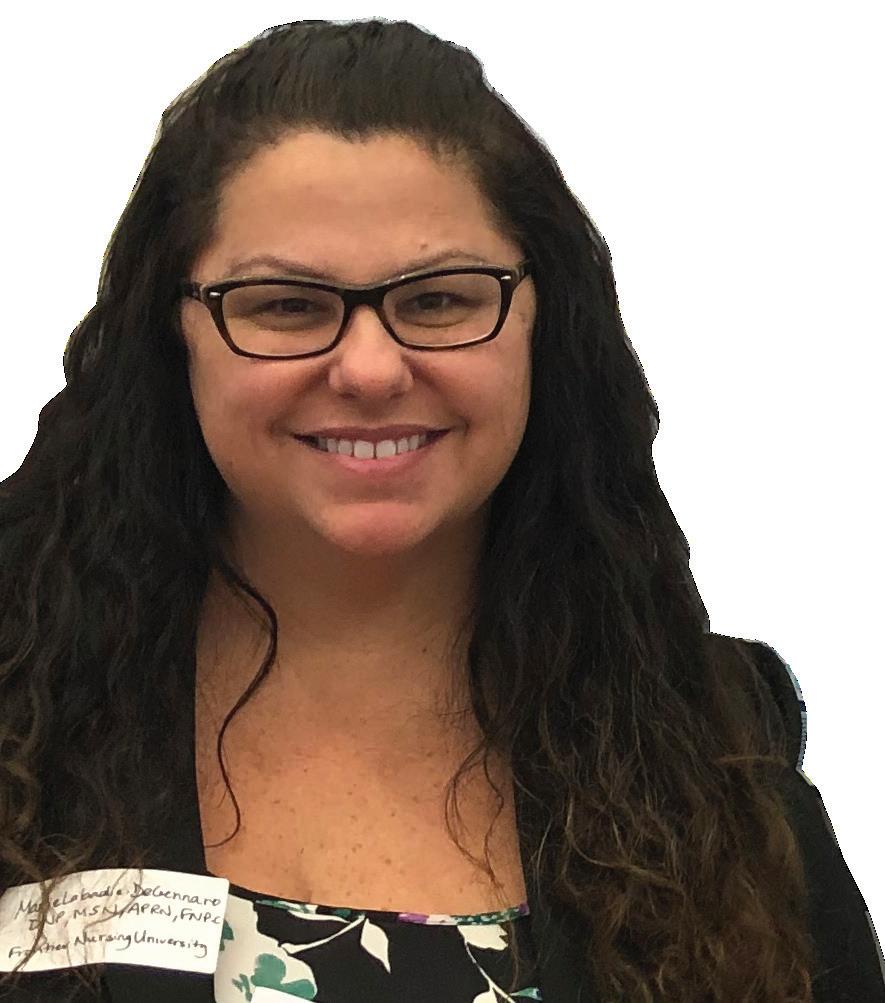


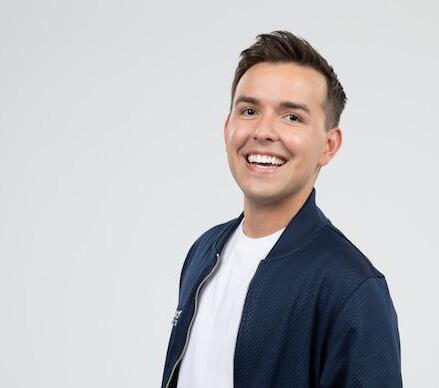 By Reneé Hewitt
By Reneé Hewitt
Whether you know Nurse Blake (Blake Lynch) from his Facebook videos, podcasts, live comedy shows, or cruises, he’s proven that he’s a force to be reckoned with using his humor to bring nurses together.

After graduating with a BSN from the University of Central Florida, Orlando, Florida, and working in trauma centers around the country, Nurse Blake started posting original comedy videos to cope with the stress of his nursing job. His lighthearted videos connect with nurses, nursing students, and healthcare workers worldwide, and he entertains almost four million followers on social media
while lifting the hearts and spirits of healthcare workers across the globe.
But Nurse Blake is more than comedy.
He’s the creative force behind NurseCon at Sea, one of the largest and most popular nursing conferences, and the NurseCon app, which provides free continuing nursing education courses.
Meet Nurse Blake, a nurse, creator, internationally touring comedian, healthcare advocate, keynote speaker, and creator of NurseCon at Sea.
Minority Nurse talked with Nurse Blake about running one of the most popular nursing conferences and his plans for NurseCon at Sea 2024 in Mexico.
Where did you go to nursing school, and what was the experience like for you?
I graduated from Seminole State College and the University of Central Florida in 2014. I was in a concurrent program. So, I got my ADN through Seminole State and my bachelor’s through the University of Central Florida.
Nursing school was hard, challenging, and not easy, and I had a lot of meltdowns, but I did it. And when I was about halfway through my program in 2013, I became president of the Florida Nursing Student Association. And that sheds light on gaps in education for nurses. I attended many nursing conferences; they were all so boring in these hideous corporate centers. So, I knew back in nursing school that I wanted to shake up the nursing conference world, but I didn’t know what that would look like. I thought about taking over one of the state nursing conferences, but zooming ahead to 2019, I decided to create my conference, NurseCon.
What was your inspiration to create one of the largest and most popular nursing conferences, and what goes into planning such a big event?
When people ask if I’m still a nurse at the bedside or in a hospital, I’m not anymore because I’m not only busy with my comedy tour, which takes me away multiple months out of the year, but I also manage and run NurseCon with a team of 90 people, including fulltime and part-time employees and contractors. NurseCon is a massive team effort; I couldn’t do it alone. I have an office in Orlando, Florida, which is convenient because our cruises sail from Miami. So, in addition
to the 1,000 staff members, we have a team of almost 100 NurseCon at Sea people trying to make this conference the best experience for our guests. So, we have educators and customer service, and we bring in our dancers, DJs, and production. So, if you look at our pictures from NurseCon at Sea and say, “Wow, that pool is so lit,” it’s because we bring our fog machines, lasers, and lighting. We have a huge production team and staff that helps elevate the regular cruise ship experience, which is already so amazing and epic, but we want to put the NurseCon at Sea touch to it.
Education is the most important. NurseCon at Sea isn’t a nursing conference without education. So, we are accredited by the American Nurses Credentialing Center (ANCC) and the California Board of Nursing. I have three DNPs that run and manage nurse candidacy education full time. We are super committed to it, and we’ll probably bring on 30 educators on our next sailing to deliver over 70 hours of CNEs. That number has gone up every year. Our first year, it was 20 hours of CNEs. Then it was 36. And now we’re jumping to almost 80, which is pretty impressive. And it’s all included in the price of the conference. We also specialize in continuing nursing education for nurse practitioners and the pharmacology track. CNEs are expensive, hard to find, and nurses need many hours. So, that’s also something we provide, and that’s included. We’ll probably have about 150 nurse practitioners in our pharmacology track on the cruise ship, which is incredible.
Do NurseCon participants request course offerings that you incorporate into the nursing conference?
Yes, we have education committees made up of some of our educators and also participants of NurseCon at Sea. This is their experience. We provide the venue, the CNEs, and the entertainment, but the guests make it an experience. So, we also always value our feedback and survey our guests after our cruise sails and even on the ship to make it the experience that nurses deserve and the experience they want. It’s such an inclusive, happy conference. And it’s all because of our guests. They make it such a safe space for everyone to be themselves and talk about the issues they’re facing, and to me, that’s the most extraordinary thing about NurseCon at Sea. We have nursing students that come on. We have retired nurses and nurses from around the world attending many specialties. Everyone in the nursing world can learn from each other even though you’re not from a specific specialty. And no matter your age or status. We’re all here to learn from each other. No matter how many degrees you have or certifications, no one’s better than anyone else.
Everyone attending NurseCon looks like they’re having a great time. Talk about what a nurse attending NurseCon can expect.

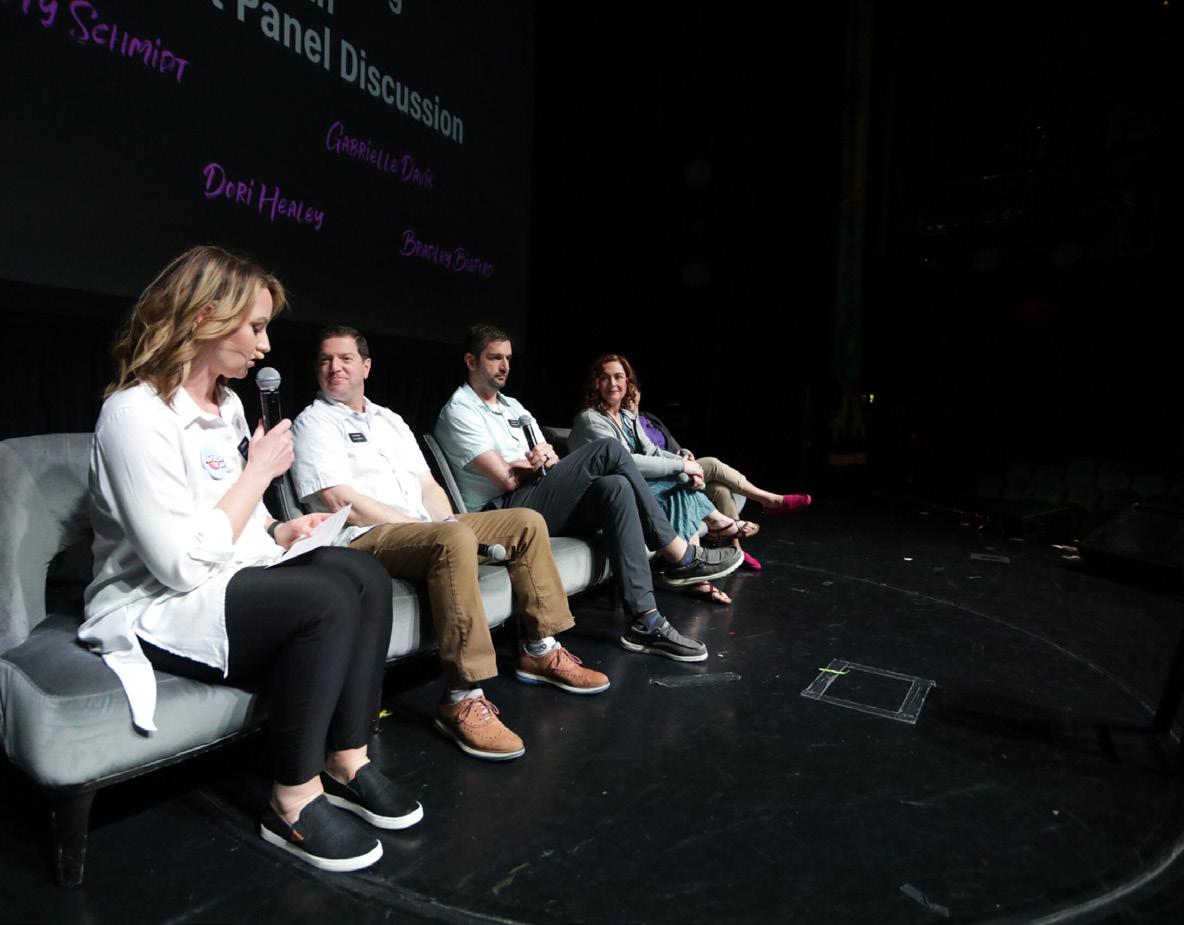
It’s epic. Vacations sometimes are once in a lifetime for people, and for them to connect with friends and family or coworkers is super special. We’ve done three cruises since we launched and had groups of nursing students who graduated together 20 years ago. Now it’s their annual trip, and they’ve been on all three. So, now it’s becoming a tradition for some people, and that’s special.
People make T-shirts, go all out on our theme nights, and are already getting their outfits ready. So, it’s a community within a community. And not even I am in all these special groups where they talk about what they’re going to do for next year. So, it’s so cool that it even lives outside of me, and NurseCon at Sea has become its own culture created by the guests.
Next year’s NurseCon event is in Mexico. Can you talk more about the courses and features?
Mexico’s going to be great. We always want to provide a new incredible location or port. So, people can get off
the ship and choose whatever activities they want to participate in. We also have two full days at sea, so it’ll be our longest one yet. And that’s because people wanted it to be longer. And our theme nights are sports night and fairy tales. So, everyone will be super busy, and I can’t wait to see everyone’s outfits. I know the dancers are so excited and already rehearsing and working on the production. We meet every day about NurseCon at Sea, so as soon as the last one is over, we’re already preparing for the next one. I will be working on booking our 2025 cruise later this month.
The NurseCon at Sea app provides users with their continuing education for free. But it’s more than education. Please talk about your inspiration to create the app and its impact on nurses.
We have the NurseCon app; you can also access it on NurseCon.com. If you can’t attend the conference or need CNEs, we have a library where nurses can get them for free. I know a lot of other websites out there that say it’s free, but
then you take the course, and then you have to pay for this certificate, or only one course is free. Ours is free, which is cool. I decided to launch this during the pandemic. I knew nurses were working so hard going through that, and I wanted to provide them with an education platform so they can get their courses for free. So, that stayed consistent. Once nurses attend our cruise, they can get their CNEs through that platform. And we will also be putting our courses from the cruise on that platform. If you can’t attend the event for whatever reason but are interested in those courses, you will take them and get the CNEs for free after the ship has sailed.
We like to talk about topics that many other conferences don’t necessarily talk about, and that’s so special. The coolest part is that you don’t have to be a nurse to attend. You have to be a guest of a nurse. And we were doing a course on pediatric trans health, and a nurse attended with her husband, who was just on as her guest. And he’s not in healthcare at all, but he sat through
NurseCon at Sea offers engaging CNE courses that are ANCC-accredited and delivered in beautiful venues around the ship. At NurseCon at Sea, nurses balance hard work with fun and games with Nurse Blake meet and greets, production shows, meet-ups, theme nights, and much more. Copyright 2023 by Nurse Blake. Reprinted with permission.the course and came up to the educator afterward and cried. And they thanked the educator because their child is trans, and they learned so much from a non-healthcare perspective just from being on the ship and attending a CNE that the nurse didn’t have to attend. Knowing that it’s going to have a positive impact on their child’s life and their life as a family unit is what makes continuing education for nurses the most special.
What makes NurseCon at Sea different from other nursing conferences?

It’s the diversity on the ship. It’s incredible. I’ll look around a room, and this is what nursing is supposed to look like. This is what nursing is supposed to be, just like this in this positive environment with nurses of all ages and backgrounds coming together and learning from each other. That’s all the community. It gets back to all our guests, making it a safe space for everyone.
Reneé Hewitt is the editor and content strategist for Minority Nurse . When enjoying life unplugged from the digital world, you’ll find her on a trail taking wildlife photos or birdwatching.
 By Julia Quinn-Szcesuil
By Julia Quinn-Szcesuil
For decades, online nursing education options offered nurses a different path to a nursing degree, but the choices were limited. Today’s nurses enjoy nursing degree program choices that provide variations in everything from how and when they take a course to the length of a program.
For many nurses, particularly those seeking advanced degrees, this expansion in online programs allows flexibility to balance work, school, and personal obligations. Despite the proliferation of programs, online coursework isn’t for everyone; some nurses work better in a more traditional classroom-based curriculum. The key is assessing each program you’re interested in, your learning style, and finding a match that sets you up for success.
For nurses considering this path, taking the time to find out essential details is time well invested. “There’s a growing number of online programs, so you have to know what you’re looking for,” says Patricia

Bruckenthal, PhD, APRN-BC, FAAN, dean and professor at Stony Brook University School of Nursing, Stony Brook, New York. “You’re making one of the more important decisions in your life, and you have to place a high level of importance on how you’re going to fit that into your life and schedule.”
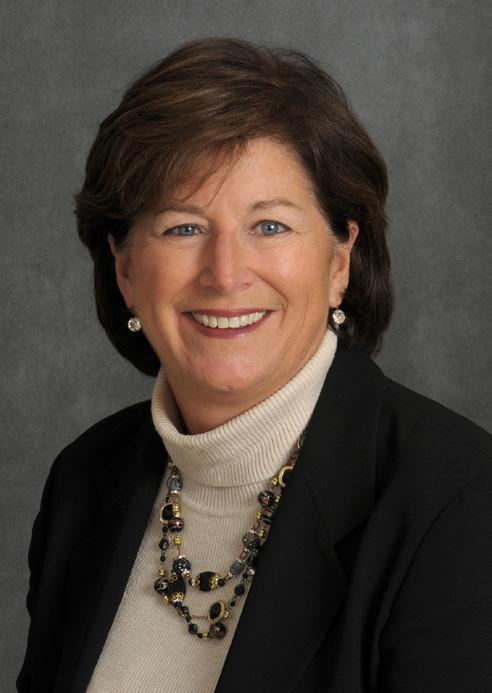

Finding a program won’t be difficult, and they should be assessed carefully as any other program. “Students considering an online program should use the same criteria for selecting a program that they would use for assessing a traditional program, including choosing an accredited program, locating programs that will help you reach your professional goals, and finding schools that specialize in your primary area of interest,” says the American Association of Colleges of Nursing (AACN) president and chief executive officer Deborah Trautman, PhD, RN, FAAN.
available information about the school and faculty members, says Bruckenthal. “Look at the level of experience the school has with online learning,” she says. “Are there any faculty who are published in online learning? Faculty who are that engaged will know students have different learning styles.”
Undoubtedly, online programs give a level of flexibility that makes a degree possible for nurses to juggle many obligations. “Due to the work and family responsibilities, working RNs often benefit from being able to attend class and complete coursework during non-traditional times,” says Mashawna Hamilton, DNP, RN, associate professor and associate director, RN to BSN Nursing at Ohio University , Athens, Ohio.
what you’re looking for,” says Bruckenthal.
Online learning takes as much discipline as in-class courses. Look at your habits, motivations, and realities to decide if an online program will provide you with more opportunities for success or with unanticipated roadblocks.
Students working remotely must be highly motivated to complete the work when they have other obligations. There are other potential obstacles to be aware of, says Bruckenthal. Do you have quiet and sufficient study space? Do you have childcare if you need it? Is your family willing to take on additional duties such as cleaning or grocery shopping so you can carve out time for school?
Be Ready for a Challenge
Flexibility also doesn’t mean anything is simplified. “The biggest mistake a student can make is assuming that online courses are less rigorous than traditional programs,” says Trautman. “These programs take discipline, strong writing skills, and keen organizational abilities. Students in online courses are expected to answer all questions, provide regular feedback through discussion forums, and complete just as many assignments.”
In addition to considering the school’s reputation and accreditation, students are encouraged to use all the
If students believe online learning offers flexibility, they still have to plan how to fit the class time and all the required work into their day. “It’s important to know
If you’re looking for a program that fits your criteria, digging a little deeper into the school, the program, admission, and curriculum requirements will give the complete picture you need to make an accurate decision.
Here are some options to consider:
• What is the program cost, and how will you pay for it?
Deborah Trautman, PhD, RN, FAAN, is the president and chief executive officer of AACN. Mashawna Hamilton, DNP, RN, is the associate professor and associate director, RN to BSN Nursing at Ohio University, Athens, OH.• What is the average program completion time?
• Are online students ever required to be on campus?
• What is the curriculum delivery (is it asynchronous or synchronous)?
• What do postgraduate career outcomes look like?
• What are the technology requirements?
• What happens if you need more time to complete the program?
Knowing what happens for students postgraduation—from employment to alum networking—is critical to the whole program. “Students should consider the reputation of the online programs,” says Hamilton. “In doing so, consider comments from employers of previous graduates. What is the graduate employment rate? What accolades has the program received from national agencies?”
When you find a program that fits your learning expectations, schedule, and budget, some final details need
clarification before committing to a program.
Trautman recommends contacting each school to assess how the learning format, clinical experience, and academic and professional development supports offered will help you. “School advisors will know what options and assistance is available to offset costs, including scholarships and loan repayment programs,” she says. “The only way to fully know what institutionspecific programs are available is to contact the nursing school.”
And when planning when you’ll have that degree in hand, remember the course schedule of each school can vary. An average program completion time can indicate the pace of courses and flexibility, but sometimes required courses are offered only once or twice a year. If you aren’t aware of the schedule, it can derail your expected graduation date. “Students should also inquire about the frequency courses
are delivered, the expected time dedication for courses, and requirements for part-time and or full-time enrollment,” says Hamilton.
During your research, find out what assistance is offered to online students. Because a program is online, it may seem more difficult to access help when you can’t just go to a physical office. “The strength of student support programs can significantly impact the student’s success during their academic journey,” says Hamilton.
Good online nursing programs will have support, including online office hours for faculty members, remote technology support, online study, social groups, and even one-on-one student support from the college. Students may want to ask about online libraries, learning labs, online writing help, skill-building webinars, wellness services, and opportunities for online
student engagement as well, says Trautman.
And students also have options that are outside the campus to help them succeed in an online program, including professional nursing organizations. For example, master’s and doctoral program students can access a free membership to AACN’s Graduate Nursing Student Academy , which provides focused support opportunities for students in online and traditional programs.
For many nurses, remote degree programs open possibilities and help bring more nurses into the workforce. “Since these programs are generally directed toward individuals who are already licensed registered nurses, most students are working and trying to juggle life’s many demands,” says Trautman. “Online programs make that possible.”
 Julia Quinn-Szcesuil is a freelance writer based in Bolton, MA.
Julia Quinn-Szcesuil is a freelance writer based in Bolton, MA.

Give them the best answer with HalesMeds.
Prescribe Responsibly
 By Louis Pilla
By Louis Pilla
Nursing has always held health equity as a critical value in many ways. Nurses strive to deliver the best care to all patients, independent of socioeconomic status, gender, race, or other factors.
Health equity arguably gets even more attention than in the past. And that attention also occurs in nursing schools, where nurses are presented with the concept of health equity.
In this article, we examine how various schools teach health equity. But first, let’s define the term.
“Fair and Just Opportunity”
Health equity, according to the Centers for Disease Control and Prevention (CDC), “is the state in which everyone has a fair and just opportunity to attain their highest level of health.” Educator Jessica Alicea-Planas, PhD, MPH, RN, of the Egan School of Nursing and Health Studies at Fairfield University in Fairfield, Connecticut, echoes that sentiment, defining health equity as “ensuring that everyone has an
opportunity to live whatever they feel their healthiest life should be.”
“Equity should mean that people have the opportunity to get what they need when they need it,” notes Alicea-Planas, associate professor of nursing at Egan and practicing nurse at a community health center in Fairfield, CT. “That’s something that has historically been lacking for certain communities within our healthcare system.” Health equity means that “everyone has the ability and opportunity to be healthy and to access healthcare to help them maintain health,” says Latina Brooks, PhD, CNP, FAANP, associate professor at Frances Payne Bolton School of Nursing, Case Western Reserve University, Cleveland, Ohio. Brooks also directs the MSN and DNP programs at Frances Payne.
and healthcare; and eliminate preventable health disparities. Health equity isn’t just about access to healthcare, notes Elaine Foster, PhD, MSN, RN, vice president of nursing, Education Affiliates. It can also relate to whether a diabetic patient, for instance, knows what to get checked. “I think sometimes we’ve put a very narrow description on health equity, and I think if you were to flesh it out, it goes beyond that accessibility,” Foster notes.
At various schools, health equity is integrated throughout the course of study. For instance, at Adelphi University College of Nursing and Public Health, Long Island, New York, health equity is threaded throughout the undergraduate and graduate curriculum in various courses, notes Deborah Hunt, PhD, RN, Dr. Betty L. Forest dean and professor. For example, in the school’s community health course, there is a focus on vulnerable and underserved populations. In the childbearing course, Hunt notes, there is a focus on health disparities and maternal and infant mortality.


Foster notes that health equity is threaded into the curriculum at the 21 nursing schools within the Education Affiliates system. Likewise, at Frances Payne Bolton, health equity is integrated into courses. However, Brooks notes that some courses go more in-depth, such as discussing health equity in vulnerable populations.
“You can even take health equity that next step and say, Do you have an advocate or do you have someone who knows to push the envelope?” says Foster. “We have to be active participants in our healthcare these days to get what we need.”
The CDC notes that achieving health equity requires ongoing efforts to address historical and contemporary injustices; overcome economic, social, and other obstacles to health
Besides accessing resources, health equity involves “understanding how to navigate our healthcare system,” says AliceaPlanas. “It is understanding the information that’s being provided to us by healthcare providers and being able to use it for patients to do well on their health and wellness journey.”
At Egan, introductory courses talk a lot about health equity and social determinants of health, notes Alicea-Planas, as do clinical courses. “I think a big part of understanding health equity is also understanding social determinants of health,” says Alicea-Planas. “I am super excited that now in the nursing curriculum, we have lots of conversations around those social determinants of health and how they influence people’s ability to attain their highest level of health.”
One crucial learning that Alicea-Planas hopes students

take away is that for students who haven’t been exposed to many people from different backgrounds, it’s essential “to understand how historically our healthcare system has treated certain communities of color. That factors into people’s feelings about how doctors or nurses treat them, influencing their ability to seek care.”

Alicea-Planas notes that students wanting to explore the topic of implicit bias can take a test on the Project Implicit website. In addition, the Kirwan Institute for the Study of Race and Ethnicity at The Ohio State University offers online modules on implicit bias.
Foster hopes that students learn that no matter what
the patient’s background, “Everyone is entitled to good, nonjudgmental care within the healthcare system.” Students must learn “not to impose our beliefs, our judgment on someone. Because until we get rid of that type of judgment, we will never overcome issues with health equity because we’ve got to first check our beliefs
and opinions at the door and say I’m going to give the best care possible to these patients.”
Louis Pilla is a seasoned publishing expert with over 20 years of experience providing content and digital products to healthcare audiences.

 By Alani Frederick
By Alani Frederick
In today’s climate, nursing is everywhere. Nursing is in the news and social media, but the coverage is rarely positive. Nursing has been America’s most trusted profession for years, but COVID19 changed the perception of nursing.

No longer are nurses viewed as the safe harbor for patients who were battered by the winds and wrath of an industrial healthcare complex. Instead, nurses are publicly placed on trial for system errors and named in lawsuits for medical malpractice. What does the future of nursing look like in America? No one knows for certain, but I do know who can reframe the perception of nursing, and that is the nurse educator.
nurse in existence who has not passed through the skilled hands of a nurse educator. The educator can genuinely alter the perception of a new nurse before the nurse even realizes they have been altered. The nurse educator can transfer tolerance and understanding through their formative teachings, prejudice, and judgment. The responsibility to develop the future of the entire profession rests on a select few, rarely acknowledged, who guard our profession with love and passion.
American Association of Colleges of Nursing, a faculty vacancy rate of 8.8% nationwide has remained. This has resulted in a horrendous outcome of over 91,000 qualified applicants being turned away from nursing programs. Turning away applicants continues to exacerbate the nursing shortage. With the current projection from NCSBN of close to onefifth of the nursing workforce looking to exit in the next five years, every applicant to a nursing school is a building block to the solution.
touch a few lives every shift. But if, as an educator, I have taught the floor of nurses, my reach is far greater than I will ever know. Knowing that your influence can affect the healthcare of a region, state, or nation is a pride and privilege few know. Nursing education is a beautiful profession that is far too often overlooked but should be dutifully considered.
The nurse educator is truly the master of the soul of nursing. Still, they are rarely esteemed for the critical work accomplished. The nurse educator takes the raw material of an eager student and pours endless knowledge and skills to form the building blocks of a nurse. There is not a single
It is passion that drives the nurse educator. It surely is not the ability to earn a high income. According to the Bureau of Labor Statistics, the average nurse educator earns an annual income of $78,000. For a job that requires an advanced degree, any nurse educator could be better served with more lucrative uses of their degree, such as a nurse practitioner or joining an organization’s nursing leadership. It’s not the hours that drive the nurse educator. Is getting Christmas off a perk? Absolutely! Is waking up to 13 texts from a student who could not upload an assignment a benefit! Absolutely not. As a nurse educator, the breaks from classes are spent reworking material, developing new experiences, and continuing to grow professionally. It is truly a passion and a calling that drives the nurse educator.
Why should every nurse be aware of the need for nursing faculty? According to the
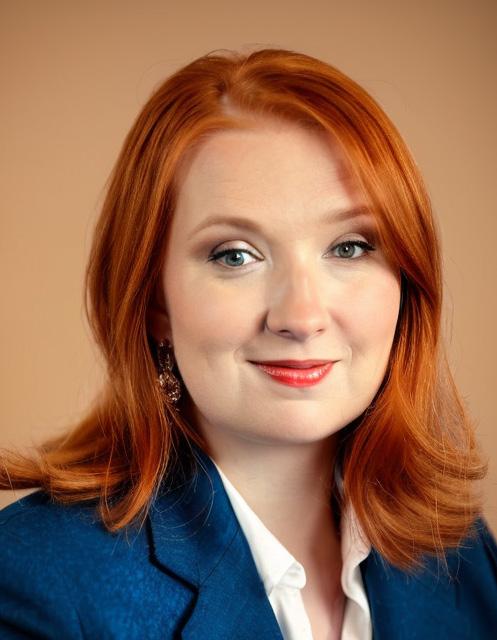
So why consider nursing education? The nurse educator is an artist. They take a piece of unformed clay and place pressure to mold and change the clay into a beautiful vase. With every student, educators leave a tiny part of themselves to transform a corner of the world. As a bedside nurse, I
Alani Frederick is the dean of health professions for Illinois Eastern Community Colleges. She is an innovative and forward-thinking professional educator, resulting in the first Department of Labor Registered Nursing Apprenticeship in Illinois in 2022. Frederick is an alumnus of Northern Kentucky University, Western Governors University, and Ivy Tech Community College and believes that nursing educators are the key to the future success of the nursing profession.